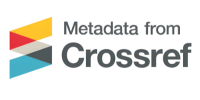Global Perspectives in Teacher Education: Cross-Cultural Approaches to Pedagogy
DOI:
https://doi.org/10.25215/31075037.066Keywords:
Teacher Education, Cross-Cultural Pedagogy, Global Perspectives, Intercultural Competence, Culturally Responsive Teaching, Inclusive Education, Teacher Preparation Programs, Comparative Education, Educational Policy, Multicultural ClassroomsAbstract
The element of teacher education in the present world is increasingly getting interrelated and therefore it should not be limited to local and national borders but should instill in teachers the ability to navigate around the classroom environment effectively. The attitudes to the teacher education in the world are discussed in the paper where cross-cultural approaches to pedagogy, issues and possibilities of training teachers to work in culturally diverse learning environment are touched upon. The research question is based on the comparative research, international policy models, and case studies in different regions and the findings are to be established on the inclusion of global competencies in teacher preparation programs, culturally responsive teaching and learning practices, and inclusive pedagogies. Thematic areas are cumulative of intercultural awareness, adaptation of curriculum to diverse student population and the integration of collaborative and reflective pedagogies. Other problems addressed in the research are systemic and structural in nature like the unequal allocation of resources, disparity in the training requirements of the teachers and the barriers that the sociocultural structure presents against the learning of new teaching practices. As the results demonstrate, the successful cross-cultural teacher education courses can help teachers become flexible, understanding, and reflective practitioners so that they could meet the needs of diverse learners and guarantee equity and social justice in educational facilities. In addition, the paper also dwells on the spirit of worldwide collaboration and sharing of knowledge by teacher educators, policy and practitioners so as to develop sustainable pedagogical practices that are not only climate sensitive, but also global educational needs. The paper gives a generalized idea of the incorporation of global perspectives in the teacher education by merging theoretical conceptions and practical connotations. The implications involve the curriculum developers, the educational management, and the policymakers who would wish to increase the preparedness of teachers and propagate pedagogical standard in a multicultural and a dynamic international education environment.












